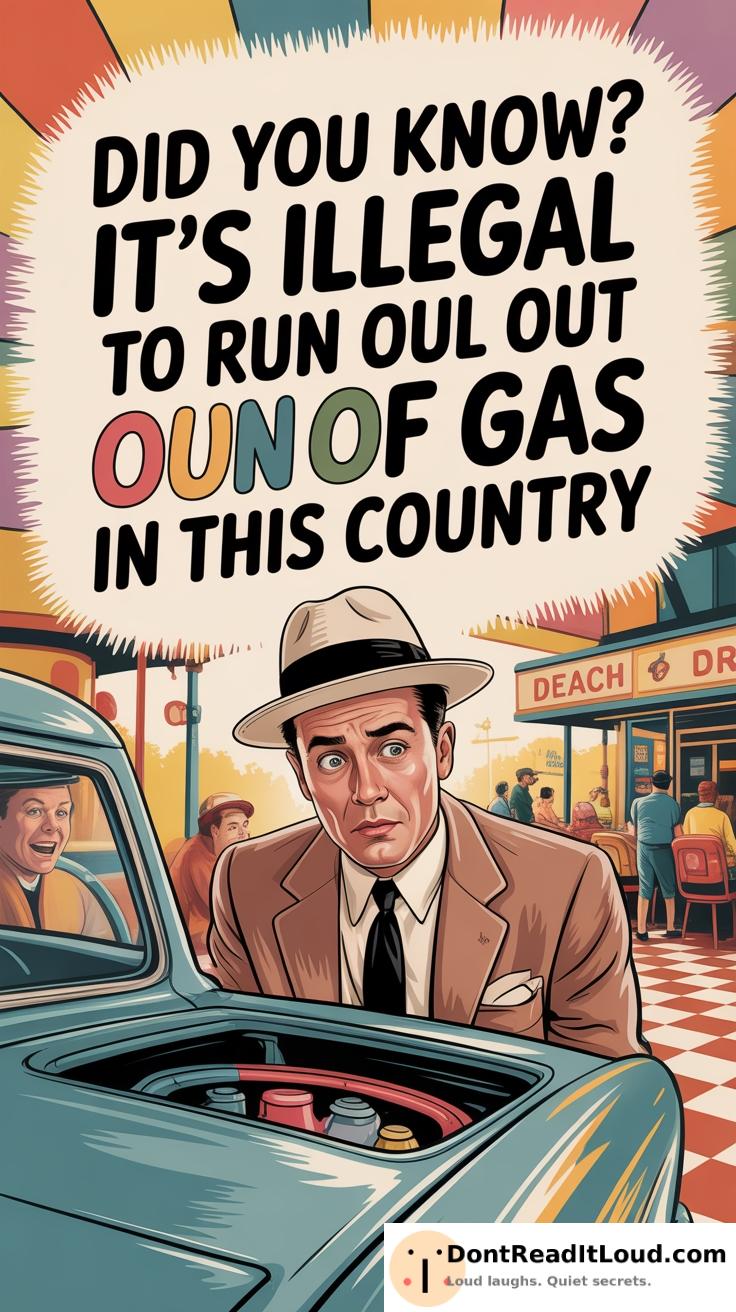
In Germany, running out of gas on the Autobahn is illegal because of the highway’s high-speed nature. This law highlights the country’s commitment to safety and personal responsibility. Fines range from 30 to 70 euros, and they can be higher if your car blocks traffic. The rule showcases German values of efficiency and reliability.
The Origin of This Law
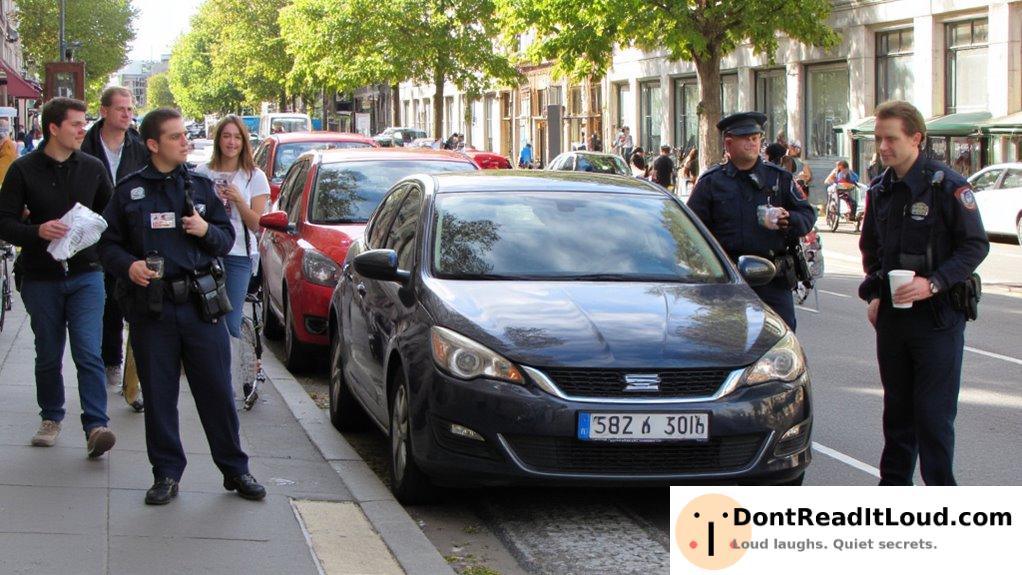
In Germany, running out of gas while driving on the Autobahn is illegal. This rule is part of the country’s commitment to safety and efficiency on its famous high-speed roads. Because sections of the Autobahn have no speed limit, drivers are expected to be especially careful and alert.
This law dates back to the early days of Germany’s road network development in the 20th century. The Autobahn, first opened in 1932, was intended as a showcase of progress and innovation. As traffic increased, officials saw the need for strict regulations to keep accidents and interruptions to a minimum.
A vehicle that runs out of fuel and stops on the Autobahn becomes a serious hazard. Stranded cars in fast-moving traffic can be dangerous for everyone on the road. The risk of collisions rises sharply when a car unexpectedly slows down or stops.
To address these dangers, German traffic laws discourage actions that could cause such situations. The rule against running out of gas is just one part of a larger effort to keep traffic moving safely. By requiring drivers to fuel up before entering the Autobahn, the law helps avoid unnecessary stops and keeps the roads safer.
This regulation also highlights Germany’s focus on responsibility and efficiency. Drivers are expected to plan ahead, making sure their vehicles are in good shape and have enough fuel. The law serves as a reminder to be prepared and to consider the safety of everyone using the road.
Why This Law Exists
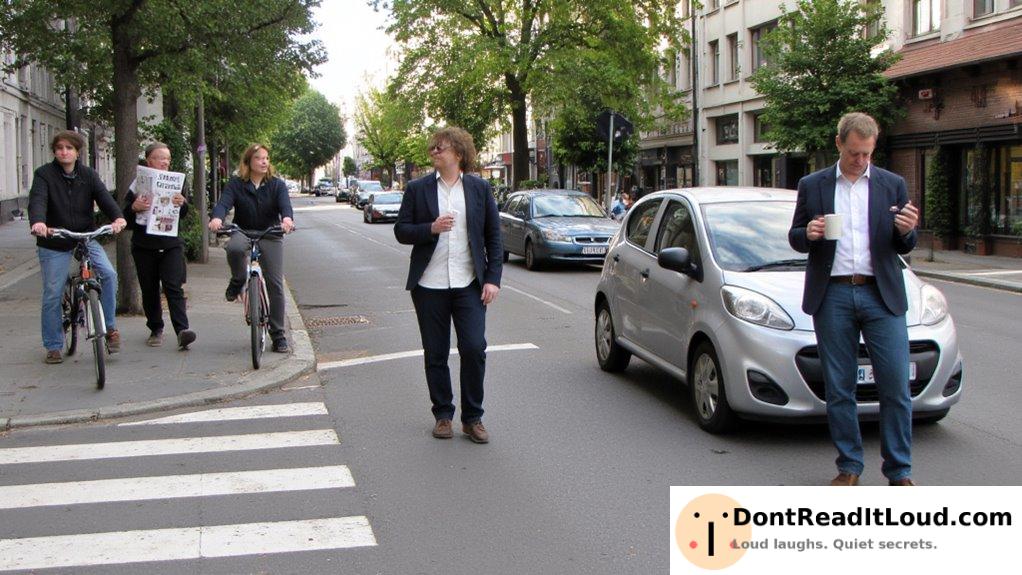
In Germany, it’s illegal to run out of gas on the Autobahn for several practical, cultural, and political reasons.
Practically, the Autobahn is one of the world’s fastest highways, with many sections lacking a general speed limit. Stopping due to an empty tank can be extremely dangerous for both the stranded driver and other motorists. At such high speeds, sudden stops on the roadside greatly increase the risk of serious accidents.
The law therefore encourages drivers to keep their vehicles fueled and ready for safe travel.
Culturally, Germans value efficiency and personal responsibility. This law supports the expectation that drivers should plan ahead and avoid preventable disruptions. Neglecting to do so is viewed as irresponsible and disrespectful to others on the road.
Politically, the law helps protect the safety and efficiency of the Autobahn, which is vital to Germany’s infrastructure. The government wants to prevent unnecessary hazards and keep traffic moving smoothly.
How This Law Reflects it’s Culture?
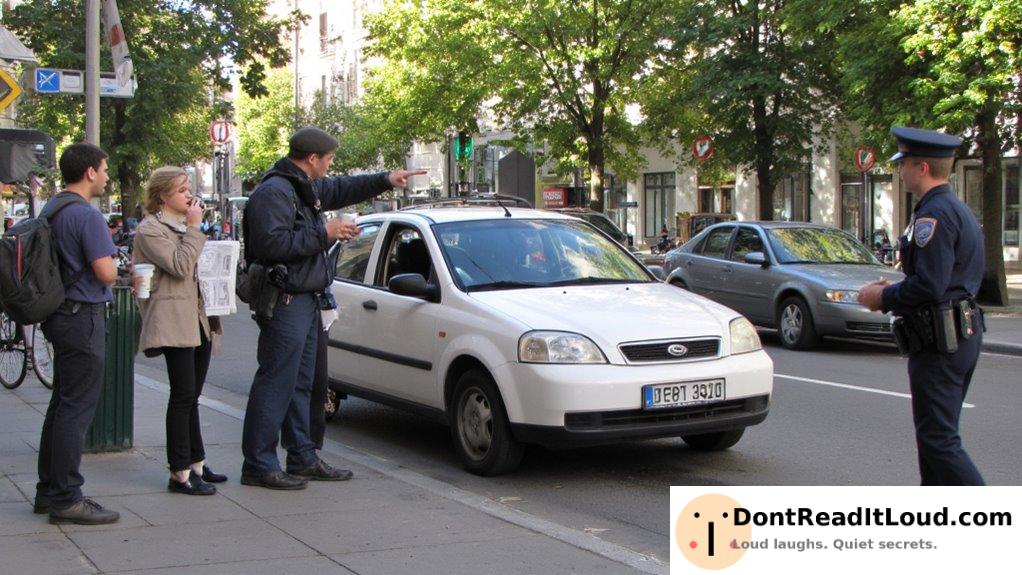
In Germany, running out of gas on the Autobahn is illegal, and this law highlights important aspects of German culture.
- Efficiency and Punctuality: Germans value punctuality and efficiency. Running out of gas causes delays and disrupts traffic, so the law encourages careful planning and preparation.
- Safety: Cars move at very high speeds on the Autobahn. A stalled vehicle creates serious safety hazards, so the law aims to protect both drivers and others on the road.
- Responsibility and Self-Reliance: German culture emphasizes personal responsibility. Drivers are expected to fuel up in advance, showing self-reliance and conscientiousness about their journey.
- Attention to Detail: Attention to detail is a hallmark of German life. This rule reminds drivers to monitor their fuel levels and plan ahead accordingly.
- Respect for Public Resources: Keeping the Autobahn clear helps ensure the road remains safe and efficient for all. The law reflects the value Germans place on maintaining public infrastructure.
What Happens If You Break This Law?
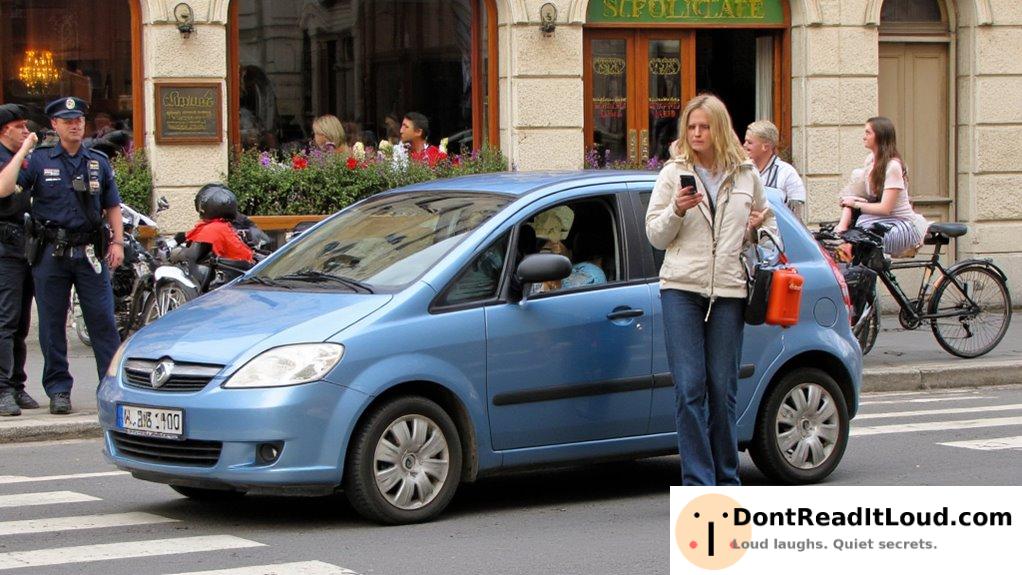
If someone runs out of gas in Germany, especially on the Autobahn, they’re technically breaking the law. Running out of fuel is seen as negligence because it’s avoidable. Drivers who stop on the Autobahn due to an empty tank can face legal consequences.
A driver in this situation typically receives a fine, usually between 30 and 70 euros, depending on what happened. If running out of gas causes an accident or major disruption, the penalties can be more severe and may include higher fines.
The driver could also be held responsible for any accidents or traffic issues that result from their car stopping for lack of fuel. This might lead to further financial consequences or even legal claims, especially if injuries or significant damages occur.
Most people in Germany support this law, as it promotes safety and keeps traffic moving smoothly. Since the Autobahn allows for high speeds, stopping unexpectedly can be very dangerous.
Drivers generally recognize the importance of keeping enough fuel to avoid creating hazards.
Could Other Countries Learn from This Law?

In Germany, running out of gas on the Autobahn is illegal and can result in fines. This law is rooted in the country’s focus on safety and efficiency on its high-speed roadways.
The Autobahn is famous for sections without speed limits, which means that stopping unexpectedly due to running out of fuel poses significant safety risks to both the driver and other road users. Therefore, the law is designed to prevent such occurrences by ensuring drivers are prepared before setting out on a journey.
Comparatively, most other countries don’t have laws specifically penalizing drivers for running out of fuel. Instead, they might have general traffic laws that penalize obstructing traffic or causing a hazard.
For example, in the United States, running out of gas might not result in a direct fine, but if it causes a traffic obstruction or leads to an accident, the driver could be cited for creating a dangerous situation.
Countries like the UK and Australia also don’t have explicit laws against running out of fuel. However, similar to the U.S., drivers could face penalties if their vehicle causes a blockage or an accident.
Could other countries learn from Germany’s approach? There are a few considerations:
- Safety: Implementing a similar law could enhance road safety, especially in countries with high-speed roadways. It would encourage drivers to plan their trips better and maintain their vehicles properly.
- Efficiency: Ensuring that vehicles don’t run out of fuel unnecessarily can improve traffic flow and reduce congestion caused by stalled vehicles.
- Practicality: However, the practicality of enforcing such a law may vary. Germany’s Autobahn system is unique, and the same principles may not apply to countries where road networks and traffic patterns differ significantly.
- Public Perception and Compliance: Public acceptance would be essential. In countries where such a law might be seen as overly punitive or difficult to enforce, it might be met with resistance.
Conclusion: What Makes this Law So Unique
In a world with diverse traffic laws, Germany’s rule against running out of gas on the Autobahn stands out for its cultural importance. This regulation goes beyond a simple traffic rule, embodying Germany’s focus on efficiency, safety, and personal responsibility.
The Autobahn’s high speeds require drivers to be especially prepared and alert. Running out of fuel is viewed as an avoidable risk that can disrupt traffic and cause accidents, which is why the law is strictly enforced.
What sets this rule apart is how closely it matches German values like precision and accountability. It highlights the expectation that drivers care for their vehicles and plan their trips carefully.
The law also reflects Germany’s dedication to keeping its highways safe and traffic moving smoothly.
Other countries might consider the broader impact of such specific traffic rules. By encouraging responsibility and preparation, these kinds of laws could improve road safety and efficiency worldwide.
Germany’s unique law is more than a matter of convenience—it shows the nation’s commitment to safety, order, and respect for public spaces.



